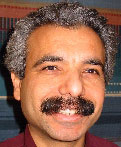SWEDISH SOUTH ASIAN STUDIES NETWORK
Energy Technology Centre in Piteå (ETC)
Postal address: Energitekniskt Centrum i Piteå, Box 726, SE-941 28 Piteå
Visiting address: Industrigatan 1
Web page: http://www.etcpitea.se/en/
South Asia related research at ETC
ETC is an independent R&D institute that is working mainly on combustion and gasification of
all types of biomass. ETC also has a leading role in the national research program of black liquor
gasification (BLG). A recent project is the collaboration with Anna University (AU) in India around
small scale power production. In this project a survey of the state of art in small scale gasification
in India was carried out. SIDA supported this survey by a planning grant.
Small scale gasification for heat- and power production in India is based on the fixed bed
gasification principle. The gasifiers are either downdraft or updraft. There are many actors in the
business from small family companies to well established ones. The Indian government supports
the development by either purchasing such plants or by subsidies to those who install new
capacities in their sites. There are two types of gasification plants; micro gasifiers (10 kWe) and
some bigger ones of 500 kWe. The micro gasifiers are used in villages to satisfy the basic needs in
villages such as water-pumping and lighting. Bigger plants are connected to the grid or placed in
industrial sites.
A study tour was made in December 2007. Power plants, researchers, suppliers and
governmental officers were visited during this tour. The general impression from this tour is that
the gasification plants are working well when qualified labour is available. Plants that are
located in urban areas suffer from operational problems. These problems seem to be both political
and technical. Technical problems seem to be mainly caused by the dependence on manual
operation of the plants. The main reasons for difficulties are:
• Shortage of fuel supply
• The specifications of the biofuels are not satisfied
• Shortage of labour (skilled and non-skilled)
• Unstable national grid
The gas cleaning system is based on water scrubbing. Water that is used in the scrubbing is
replaced several times annually and disposed in fields. The producer gas contains tars, phenols
and other harmful components. The disposed water with contaminants can be mixed with ground
water or other water sources. That will cause environmental damages and may cause health
problems. All actors are aware of the problem but they remain convinced that the main task now
is to satisfy the needs for electricity and reduce the CO2-emission; the other aspects will be
treated later.
The main conclusions from this trip are:
• Indian biomass gasification technology is functioning well when operated by skilled
labour,
• The plants are mainly manually operated. Automation would generally improve the
economy and thereby make export to development countries possible.
• Water scrubbing causes environmental problems and there is a strong need to develop a
better cleaning system.
 Dr. Hassan Salman has been a project leader and senior researcher at ETC since August 2002. In addition to his main research field in gasification, he has been involved in other work such as CFD-modelling, process optimisation and energy effectiveness.
Dr. Hassan Salman has been a project leader and senior researcher at ETC since August 2002. In addition to his main research field in gasification, he has been involved in other work such as CFD-modelling, process optimisation and energy effectiveness.
Dr. Salman has now (2010) however left ETC and formed his own company. ![]()
At the Meeting Global Challenges in Research Cooperation conference on current Swedish development research, held in Uppsala 27–29 May 2008, Dr. Hassan presented a poster presentation. He participated in Session No. 1 on ”Towards sustainable energy systems: sources, technologies and consumption”, with a presentation titled ”Small Scale Gasification for Power Production in India”.
ETC has recently started a cooperation project with Luleå University of Technology, Makerere University/Uganda and KTH. The project is titled "Development of combustion technology for small scale CHP based on external fired gas turbine – Phase 1: Transference of alkali compounds to the producer gas in up-draft gasification".
ETC also applied to SIDA for a project titled: "Towards cleaner power generation for rural areas from small-scale biomass gasification". ![]()
SASNET - Swedish South Asian Studies Network/Lund
University
Address: Scheelevägen 15 D, SE-223 70 Lund, Sweden
Phone: +46 46 222 73 40
Webmaster: Lars Eklund
Last updated
2010-10-27
